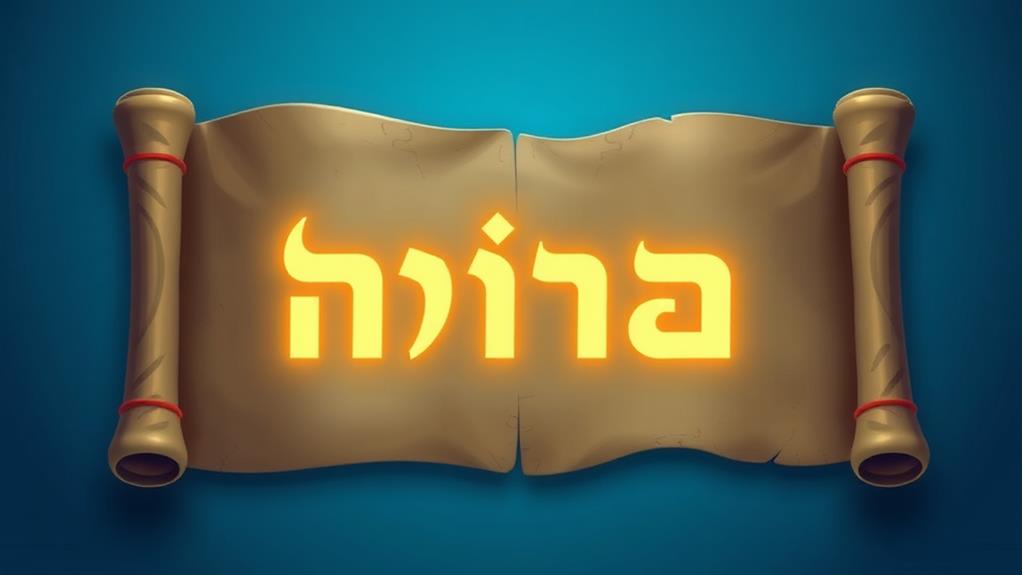Mia Name Meaning in the Bible
The name Mia is deeply rooted in the Hebrew Bible, originating from Miriam, the sister of Moses and Aaron. As the name evolved through Latin and various linguistic influences, it transformed into a diminutive and affectionate form, symbolizing love, dedication, and spiritual connection. In biblical contexts, Miriam’s name signifies “bitterness” or “rebellion,” reflecting resilience and spiritual empowerment. As a derivative of Miriam and possibly Michal, Mia embodies qualities of leadership, courage, and faith, resonating with spiritual growth and integrity. Exploring the rich cultural and symbolic connections of Mia reveals a profound legacy of love, devotion, and spiritual significance.
Key Takeaways
- Biblical Origins: Mia’s roots are in the Hebrew name Miriam, sister of Moses and Aaron, symbolizing resilience and spiritual empowerment.
- Meaning and Interpretation: Mia can be interpreted as “who is like God?” (from Michal) or associated with Miriam meaning “bitterness” or “rebellion”.
- Association with Virgin Mary: Mia inherits symbolic meanings of love, acceptance, and faith central to the Christian faith, reflecting qualities embodied by the Virgin Mary.
- Spiritual Significance: Mia resonates with spiritual growth and integrity, highlighting the significance of love and acceptance in personal and spiritual lives.
- Multicultural Depth: Mia carries historical connections to various cultures like Hebrew, Italian, and Spanish, enriching its depth and universal appeal.
Origin and Derivation

A thorough linguistic analysis indicates that Mia evolved as a diminutive of Maria, itself derived from the Hebrew Myriam, meaning “star of the sea”. This shift from Miriam and Maria to Mia reflects a simplification and modernization of the name, contributing to its widespread popularity.
The name Mia embodies qualities of dedication and industriousness, similar to those found in the name Amelia, which underscores the importance of hard work and purpose in life symbolism and characteristics of Amelia.
The Italian influence, where Mia means “mine,” adds a layer of personal connection and affection, enriching the name’s significance.
Biblical Roots and Miriam
Understanding the roots of the name Mia requires an examination of its biblical connections, particularly its association with Miriam. The name Mia has its origins in Hebrew, where Miriam is a prominent figure known for her leadership and courage. Miriam was the sister of Moses and Aaron, and her name in Hebrew means “bitterness” or “rebellion.” This biblical connection provides the name Mia with a deep significance rooted in faith and resilience, reflecting the themes of renewal and spiritual connection found in other biblical names.
Miriam’s legacy extends beyond her name’s meaning, as she played an essential role in guiding her people during the Exodus. Her story illustrates spiritual empowerment and the importance of strength in faith, reflecting on how God chooses individuals to fulfill His plans. The association of Mia with Miriam highlights themes of love, devotion, and grace, connecting it to the broader biblical narrative.
In its Hebrew origins, the name Mia can also be interpreted as a derivative of Michal, meaning “who is like God?” This duality in meaning enriches the name Mia with a blend of spiritual and cultural significance, making it a versatile and meaningful choice for parents seeking a name with deep biblical roots.
Spiritual Significance and Interpretation

Biblical Symbolism and Spiritual Interpretation
In the biblical context, Mia is closely associated with Miriam, the sister of Moses and Aaron, who exemplified leadership, courage, and faith. This connection underscores the importance of strength and resilience in spiritual journeys. Additionally, the name Mia resonates with themes of spiritual growth and integrity, reflecting biblical values similar to those found in names like Charlotte, which emphasize freedom and resilience.
The name Mia also reflects the qualities embodied by the Virgin Mary, symbolizing pure love and the deep emotional connection to God.
Spiritual Interpretation
Mia’s dual meaning of “mine” and “beloved” in Italian and Hebrew respectively highlights the essence of being cherished by God. The name speaks to a deep emotional bond and a sense of possession rooted in divine love. This spiritual interpretation emphasizes the significance of love and acceptance in personal and spiritual lives, making Mia a name that resonates with profound spiritual significance.
Conclusion
Mia’s spiritual significance, rooted in biblical symbolism and spiritual interpretation, offers a profound and inspiring message that aligns with themes of love and devotion. This name not only carries the weight of biblical history but also speaks to the universal longing for connection and divine love.
Association With Virgin Mary
The association of the name Mia with the Virgin Mary is a significant aspect of its spiritual significance, drawing parallels between the name’s connotations of love and devotion and the iconic figure of maternal love and divine care in Christianity. This connection is rooted in the Hebrew origins of the name Mia, which is often linked to the Hebrew names Miriam and Mary, emphasizing themes of cherished identity and maternal care. Additionally, like the name William, which symbolizes a resolute protector, Mia embodies qualities of unwavering commitment and love that are essential in spiritual guardianship, reflecting the importance of standing firm in faith and protecting what is sacred in one’s life through the lens of biblical symbolism.
In Christian tradition, the Virgin Mary symbolizes purity, grace, and devotion, embodying the essence of divine love and care. The name Mia, by extension, inherits these symbolic meanings, capturing the essence of love, acceptance, and faith that are central to the Christian faith. This association underscores the importance of maternal figures in religious narratives, highlighting their roles as guardians of faith and avenues of divine grace.
This connection also illuminates the broader symbolic significance of names in religious contexts, where they often carry profound meanings that reflect the virtues and values cherished by the community. By examining the name Mia through its association with the Virgin Mary, we gain deeper insights into the spiritual dynamics that underpin these names, revealing a rich tapestry of symbolic meanings and spiritual values.
Symbolic and Cultural Connections**

Delving into the symbolic and cultural connections of the name Mia, we find a rich tapestry of meanings that transcend linguistic and geographical boundaries. The name Mia carries historical connections that link it to various cultures, including Hebrew, Italian, and Spanish origins. These diverse roots give the name a depth of meaning that is both culturally and symbolically significant.
Cultural interpretations of Mia are multifaceted. In Italian, the name means “mine,” signifying personal connection and affection. In Hebrew, it is associated with Miriam, meaning “bitterness” or “rebellion,” and is linked to significant biblical figures like the sister of Moses and Aaron. The connection to Mary in Christianity emphasizes themes of maternal care and divine love.
Moreover, the name’s adaptability across languages, including Latin and Slavic variations, underscores its universal appeal. The cultural interpretations of Mia highlight its symbolic significance, reflecting qualities of love, resilience, and faith that resonate deeply with those who bear the name. Through these diverse connections, Mia embodies a profound cultural and symbolic heritage.
Frequently Asked Questions
Is Mia a Popular Name Globally?
Mia is a globally popular name, exhibiting robust appeal across cultures. Its rising popularity trends and diverse cultural associations, including Scandinavian, Italian, and Hebrew roots, contribute to its widespread adoption in over 36 countries.
How Do Different Languages Pronounce the Name Mia?
According to linguistic observations, over 80% of global languages have distinct pronunciations for “Mia,” illustrating cultural variations and phonetic differences. Specifically, Italian cultures pronounce it as “mee-ah,” Scandinavian and Hebrew variations use “mee-uh,” while Spanish and Slavic languages employ “mya” or “mee-yah,” reflecting regional interpretations and linguistic nuances.
Can Mia Be Used as a Middle Name Effectively?
Mia can be an effective middle name, offering a trendy choice with significant meaning. Middle name options like Mia Violet, Mia Juliet, and Mia Eleanor showcase its versatility, blending seamlessly with various first names to create unique combinations.
What Famous Celebrities Are Named Mia?
Notable figures include Mia Farrow, renowned for her impactful roles in films like “Rosemary’s Baby” and “The Great Gatsby,” and Mia Hamm, a celebrated soccer player. The name has risen in popularity, becoming a trendy choice, symbolizing the evolving landscape of cultural freedom and identity.
Does Mia Have Numerological Significance in Naming?
The name Mia holds numerological significance, associated with the number 4 or 5, symbolizing stability, practicality, or freedom and change. Its biblical implications and spiritual connections enrich its meaning, reflecting love, grace, and faith.
Names Reflecting Grace and Strength
- Mackenzie Name Meaning in the Bible
- Michael Name Meaning in the Bible
- Mary Name Meaning in the Bible
- Mia Name Meaning in the Bible
- Mark Name Meaning in the Bible
Conclusion
The name Mia is a reflection of the profound interconnections between language, culture, and spirituality. With roots as vast as the stars and as deep as the sea, Mia’s meaning is a cosmic symphony of love, reverence, and devotion. It is a name that echoes across centuries, religions, and civilizations, embodying a guiding light of faith and devotion that is truly limitless. Its influence is so vast that it could fill a thousand libraries with tales of its impact.






